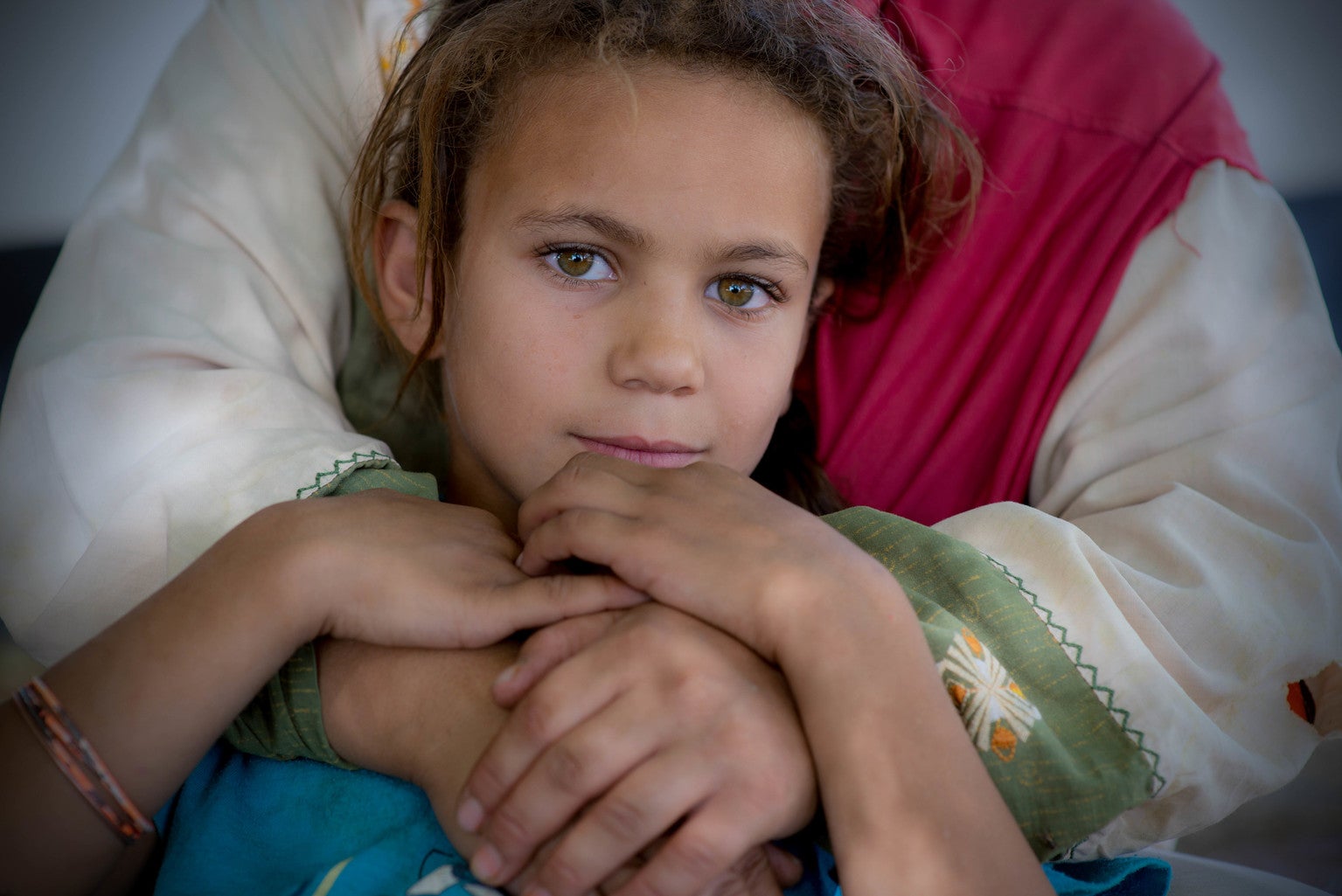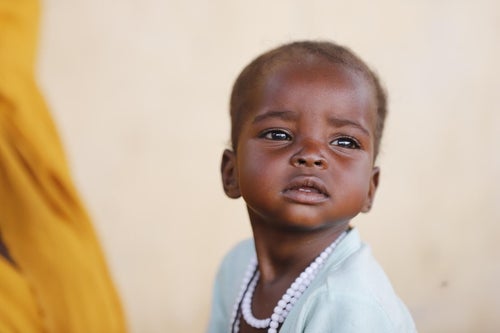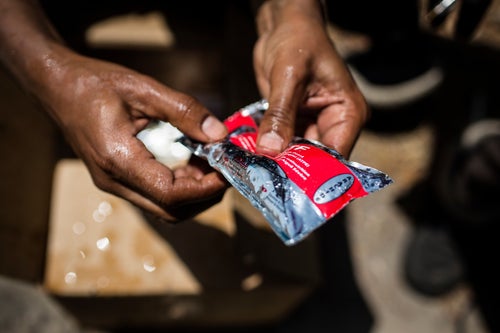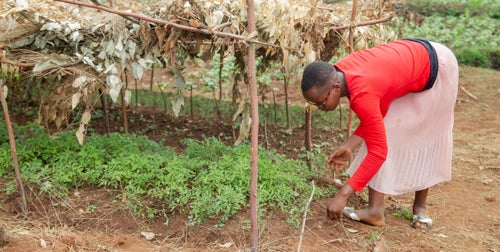We rarely hear good news from Syria.
We turn on our televisions every night to unspeakable horrors. We read about innocent children bombed in their beds and trapped under siege. We hear about families forced to take dangerous journeys by sea and land - how some of them make it to safety, and some don’t.
All of this news is terrible. But amongst it, there were headlines we could turn around.
Passionate supporters have kept UNICEF, one of the world’s leading children’s charities, on the ground in Syria and refugee camps delivering life-saving aid every single day. It’s had a huge impact.
Read on to see how we’ve changed the news for Syrian children together.
1. When water cuts risked lives in Aleppo, UNICEF trucked in a billion litres – fast

It’s hard to imagine a more pressing threat than guns and bombs but Syrian families have fought to survive from an equally dangerous weapon: water cuts.
Water has been weaponised against nearly 5 million Syrians. Armed forces have shut off water at the source while bombs have destroyed pumping stations and damaged pipes. Humanitarian workers have risked their lives to keep water flowing.
As extreme violence in 2016 trapped millions in the city of Aleppo, water cuts drove families to desperation. Children found water wherever they could, risking deadly waterborne diseases without access to the medicine that could help them recover.
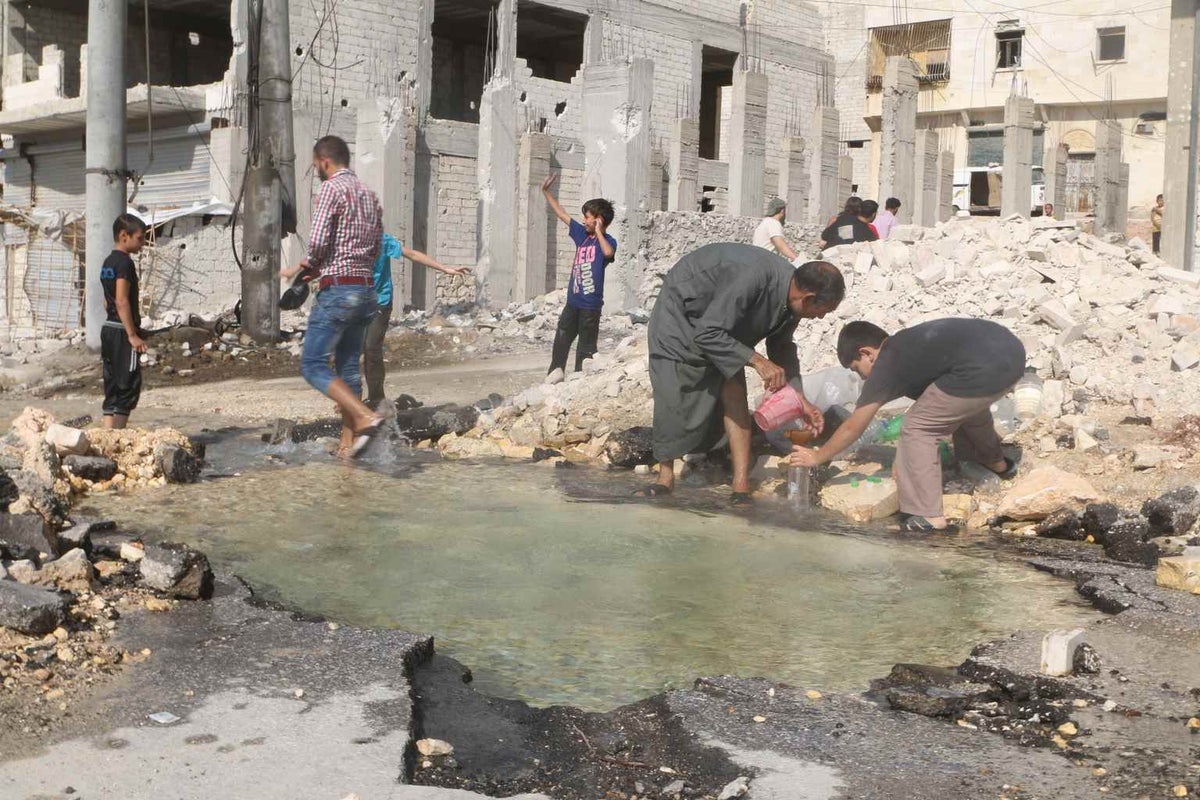
UNICEF leads the delivery of water to Syrian children and families. When civilians in Aleppo needed emergency water, UNICEF scaled up our response in a huge way. Together with local partners we:
- trucked in 1.5 billion litres of life-saving clean water;
- kept Aleppo’s four pumping stations running with 4 million litres of fuel;
- sent in experts to rehabilitate the damaged water network;
- turned dangerous water into a safe, clean source of life with 80 tonnes of water disinfectant.
UNICEF doesn’t receive any money from the UN. All of this was achieved with the generosity of supporters in Australia and around the world. This passionate group of people is the reason 300,000 children in Syria woke up and went to a school with safe water last year. They’re how we could wake up in Australia to good news: there had been no major outbreak of a waterborne disease in 2016. Their regular support meant UNICEF could build 100 underground wells to turn the horror of water cuts into a better story for a million children.
2. After bombing forced schools to shut, UNICEF helped them rise from the rubble
Children in the besieged parts of Aleppo didn’t start school on time last September. Instead of thriving in class and playing games in their schoolyard, they were helplessly trapped by violence. Hiding in basements. Afraid to go outside. Too scared to sleep.
Parents who should have been walking their children to school were digging them out of rubble with their bare hands; desperately rushing them to hospitals.
Getting children in Aleppo back to school was urgent. They needed to learn, play and recover from the profound stress of violence. They needed a routine again; they needed to feel normal. UNICEF teams in Syria got children back to school as soon as possible by:
- reopening 23 primary schools and setting up ten prefabricated classrooms in the city so 6,500 children could back to learning;
- coordinating with education authorities on Curriculum B – a special learning programme to help kids catch up when they’ve missed out on school;
- distributing ‘schools in a box’ to 90,000 kids. For children who’ve fled their homes with nothing but the clothes they’re wearing, these packs of textbooks, stationery and school bags are a fresh start.
UNICEF makes sure more of the world’s children are educated than any other organisation. We use this expertise every day to turn the news around for Syrian children in the world’s deadliest war zone. UNICEF helped increase school enrolment by eight per cent in 2016 despite the huge obstacles presented by ongoing violence. Last year we helped trained 23,000 teachers to make sure no child is left behind in class. And we helped 12,430 in rural and besieged attend their high school exams and start writing a story for themselves.
Last year’s harsh winter brought new threats of hypothermia and serious respiratory infection to children already weakened by malnutrition and lack of health care.
Children huddled in cold warehouses in Aleppo; they shivered behind the thin walls of refugee tents in Jordan and Lebanon; they burnt whatever they could find – rubbish, their toys – just to survive another night.
When it seemed all the warmth in the world was fading, UNICEF helped change the news for children starting to lose hope.
In the midst of escalating violence in his city of Aleppo, 10-year-old Ahmed wandered into a warehouse on the outskirts of the city. That’s where UNICEF found him: orphaned, worried, exhausted and cold, burning what little firewood he could find to stay warm.
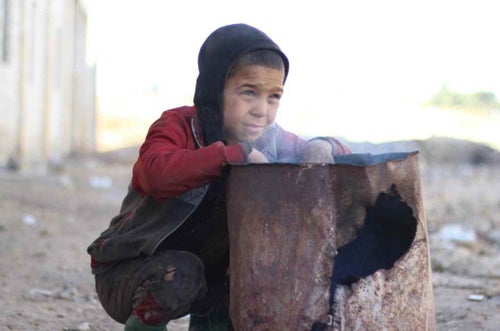
Ahmed
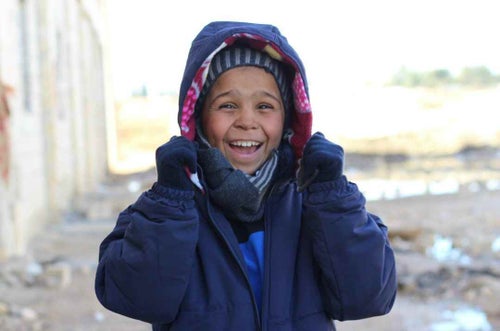
Ahmed after
Ahmed’s face lit up when we gave him a box full of warm jackets, trousers and shoes – and again when he realised the clothes were a perfect fit.
Nothing will erase the unforgivable violence and loss this young boy has endured, but psychosocial sessions with UNICEF specialists will help him cope and recover and these warm clothes will protect him from hypothermia and pneumonia.
We gave the same winter supplies to 480,000 children like Ahmed in Syria last winter, turning the harsh winter from a horror story to a challenge they’re determined to overcome.
4. Syria’s healthcare system crumbled but UNICEF stayed on the ground
Surviving any crisis is hard. Syria’s crumbling healthcare system adds a new challenge for children and families: they can’t afford to get sick.
Children are forced to drink unsafe water and eat the little food their parents can afford. They dodge bullets, run from bombs and walk past unexploded weapons on the way to school. They take incredible risks just to survive each day but if they get sick or injured, there might be nowhere to go.
UNICEF does whatever it takes to reach children in danger. As hospitals continued to shut and health workers fled for safety in 2017, UNICEF:
- trained more than 1,426 doctors, nurses, midwives and other health specialists;
- worked with partners to rehabilitate 15 health centres and run 30 remote health teams who travelled to areas others couldn’t reach;
- vaccinated almost three million young children against polio.
Change the news for Syrian children
For seven years, we’ve seen the brutality of this war play out on our television screens. It’s outrageous and utterly exhausting but we don’t need to just sit back and be overwhelmed. There’s something powerful every Australian can do: help change the news for a Syrian child with a donation to UNICEF.
Don’t turn the news off, turn it around.
Deliver safe water to a child in an emergency shelter; bring a first aid kit to a family in a refugee camp. Give a child the little things like soap and toothpaste they need to live in dignity.
UNICEF has been on the ground in Syria and refugee camps every day of this conflict. We’ve shipped emergency supplies within hours, reached children in areas no one else could and, like the children of Syria, we’ve never given up. But six years of war have stretched our teams to the limit and we need your help to reach more children.
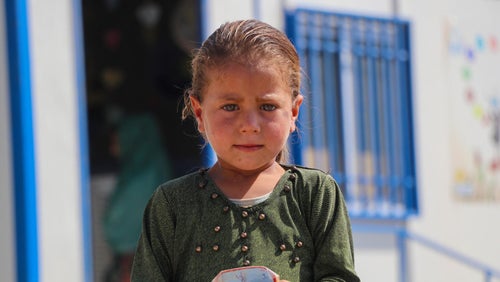
Make a good news story for a Syrian child with an urgent donation today.
For over a decade, a generation of children have grown up knowing nothing but war.
Related articles
Stay up-to-date on UNICEF's work in Australia and around the world



